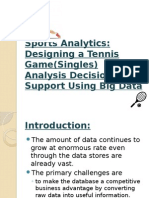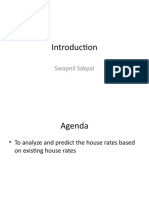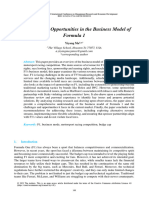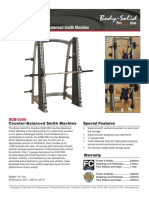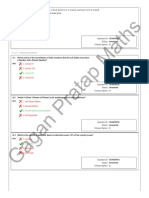0% found this document useful (0 votes)
170 views4 pagesCricket Data Analysis Report
The Cricket Data Analysis Report details the acquisition and analysis of cricket data from various sources, focusing on grounds and bowler performance. Key findings indicate that pitch conditions and weather significantly influence match outcomes, with specific venues favoring batsmen or bowlers. The report emphasizes the importance of data-driven insights for team selection and strategic planning in cricket.
Uploaded by
sai nithishaCopyright
© © All Rights Reserved
We take content rights seriously. If you suspect this is your content, claim it here.
Available Formats
Download as DOCX, PDF, TXT or read online on Scribd
0% found this document useful (0 votes)
170 views4 pagesCricket Data Analysis Report
The Cricket Data Analysis Report details the acquisition and analysis of cricket data from various sources, focusing on grounds and bowler performance. Key findings indicate that pitch conditions and weather significantly influence match outcomes, with specific venues favoring batsmen or bowlers. The report emphasizes the importance of data-driven insights for team selection and strategic planning in cricket.
Uploaded by
sai nithishaCopyright
© © All Rights Reserved
We take content rights seriously. If you suspect this is your content, claim it here.
Available Formats
Download as DOCX, PDF, TXT or read online on Scribd
/ 4







































